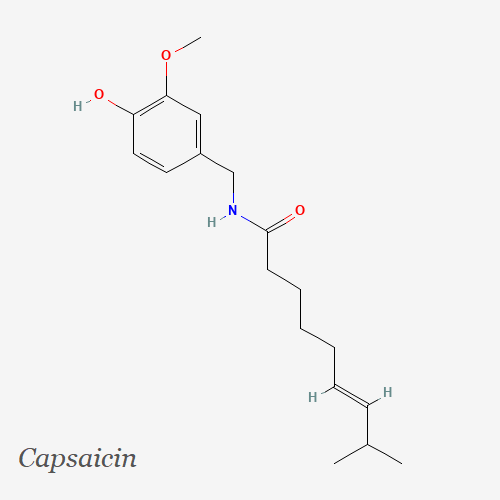Introduction
Capsicum annuum is a species of chili pepper that belongs to the Solanaceae family. It is an annual plant that can grow up to 1 meter tall, and it produces small white or purple flowers that develop into fruit pods. There are many different varieties of Capsicum annuum, and they can vary widely in terms of their size, shape, color, and level of spiciness. Some common varieties of Capsicum annuum include:

- Bell pepper: A mild variety of Capsicum annuum that is often used in cooking and has a distinctive bell-like shape.
- Jalapeño: A medium-spicy variety of Capsicum annuum that is often used in Mexican cuisine.
- Cayenne pepper: A spicy variety of Capsicum annuum that is often used as a spice or flavoring agent in cooking.
- Poblano pepper: A mild to medium-spicy variety of Capsicum annuum that is often used in Mexican cuisine.
- Thai chili pepper: A very spicy variety of Capsicum annuum that is often used in Thai cuisine.
There are many other varieties of Capsicum annuum, and they are used in cuisines around the world. Capsicum annuum can be grown in a variety of climates, and it is a popular crop for both commercial and home cultivation.
Traditional medicine
Chili peppers, or Capsicum annuum, were not known to the ancient Greeks or Romans, as they are native to the Americas and were not introduced to Europe until after Columbus’s voyages. Therefore, they were not mentioned in traditional Greco-Roman medicine.
Chili peppers have been used in traditional Indian medicine for centuries. Indeed, they were introduced to India and other parts of the world after Columbus’s voyages to the Americas. It is believed that chili peppers were introduced to India by the Portuguese in the 16th century, and they quickly became popular in Indian cuisine and medicine. In Ayurvedic medicine, which is a system of traditional medicine that originated in India, chili peppers chili peppers are known as “Lal Mirch” and they are believed to have various health benefits. They are believed to be useful in treating digestive problems, reducing inflammation, improving blood circulation, and providing pain relief. Chili peppers are used in various Ayurvedic preparations, including oils, ointments, and tinctures.
While chili peppers were not known to traditional Chinese medicine before their introduction from the Americas, they have since been incorporated into traditional Chinese medicine and are now recognized for their medicinal properties. They are used for various medicinal purposes, including to improve circulation, relieve pain, and treat respiratory and digestive issues. Chili peppers are often used in combination with other herbs in traditional Chinese medicine formulas.
Modern medicine

There is scientific evidence of the potential health benefits of Capsicum annuum, commonly known as chili peppers. Here are some potential benefits:
- Pain relief: Capsaicin, which is the compound that gives chili peppers their spicy flavor, has been shown to have pain-relieving properties. Capsaicin is often used in topical creams and patches to alleviate pain associated with conditions like arthritis and neuropathy.
- Improved digestion: Capsaicin may help stimulate the production of digestive enzymes and increase blood flow to the digestive tract, which can help improve digestion.
- Anti-inflammatory properties: Capsaicin has been shown to have anti-inflammatory properties, which may help reduce inflammation and pain associated with conditions like rheumatoid arthritis.
- Cardiovascular health: Some studies have suggested that consumption of chili peppers may be associated with improved cardiovascular health, including lower blood pressure and improved lipid profiles.
- Weight management: Capsaicin may help increase metabolism and reduce appetite, which could potentially aid in weight management.
However, it is important to note that consuming chili peppers may not be beneficial for everyone. Some people may experience digestive discomfort, such as heartburn or indigestion, from consuming spicy foods like chili peppers. In addition, consuming large amounts of chili peppers or capsaicin supplements may cause side effects like stomach irritation and even damage to the liver.
Therefore, it’s important to consume chili peppers in moderation and to talk to a healthcare provider before taking capsaicin supplements or using capsaicin-containing products for medicinal purposes.